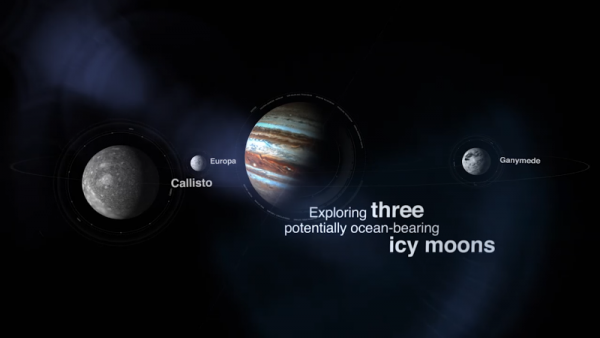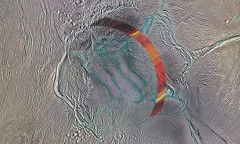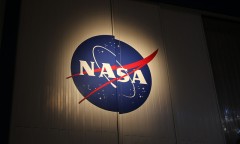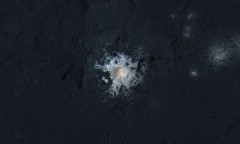By KM Diaz, | March 22, 2017

The Jupiter Icy Moons Explorer or "Juice" is set to launch this 2022. It will spend three and a half years to study the Jupiter's Galilean moons; the Europa, Callisto, and Ganymede.
The Jupiter Icy Moons Explorer or "Juice" is set to launch this 2022. The spacecraft was developed by European Space Agency (ESA). It will spend three and a half years to study the Jupiter's Galilean moons; the Europa, Callisto, and Ganymede. These three are assumed to have existing oceans below the icy crust and habitable environments.
Like Us on Facebook
According to ESA, the mission of Juice is to explore the immense magnetosphere, set of tenuous dark rings, and giant planet's turbulent atmosphere. To assure it can achieve these goals, Juice's design has to meet stringent requirements.
Earlier in this month, the ground stations and interfaces were fixed during the initial design of the spacecraft. The 5.3-ton spacecraft is also confirmed to be compatible with Ariane 5 launcher.
Juice spacecraft will be equipped with 10 state-of-the-art instruments which incorporate an ice-penetrating radar, cameras, sensors to observe the magnetic fields, radio science experiments, and particles in the Jovian system.
Juice also requires a huge solar array considering its operation is in the outer solar system and away from the sun. The solar array is made up of two wings of five panels each are foreseen to cover the total surface of the area about 100 square meters, and capable of providing 820 Watts to Jupiter until the end of the mission.
The principal engine of Juice will be used to enter the largest moon of Jupiter, Ganymede, and to revolve around the giant planet. In which, the configuration of the engine were also critically reviewed on this mission. ESA also noted that there will also be additional measures to allow Juice to cope the extremely harsh radiation so it can survive for several years by exploring around Jupiter.
-
Use of Coronavirus Pandemic Drones Raises Privacy Concerns: Drones Spread Fear, Local Officials Say

-
Coronavirus Hampers The Delivery Of Lockheed Martin F-35 Stealth Fighters For 2020

-
Instagram Speeds Up Plans to Add Account Memorialization Feature Due to COVID-19 Deaths

-
NASA: Perseverance Plans to Bring 'Mars Rock' to Earth in 2031

-
600 Dead And 3,000 In The Hospital as Iranians Believed Drinking High-Concentrations of Alcohol Can Cure The Coronavirus

-
600 Dead And 3,000 In The Hospital as Iranians Believed Drinking High-Concentrations of Alcohol Can Cure The Coronavirus

-
COVID-19: Doctors, Nurses Use Virtual Reality to Learn New Skills in Treating Coronavirus Patients












